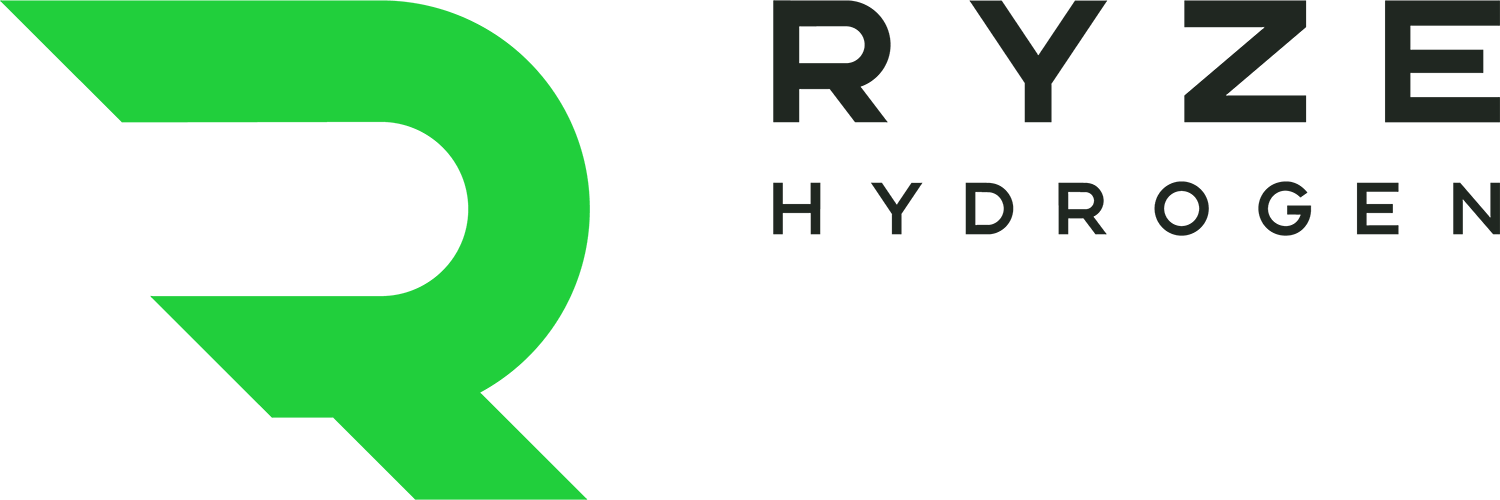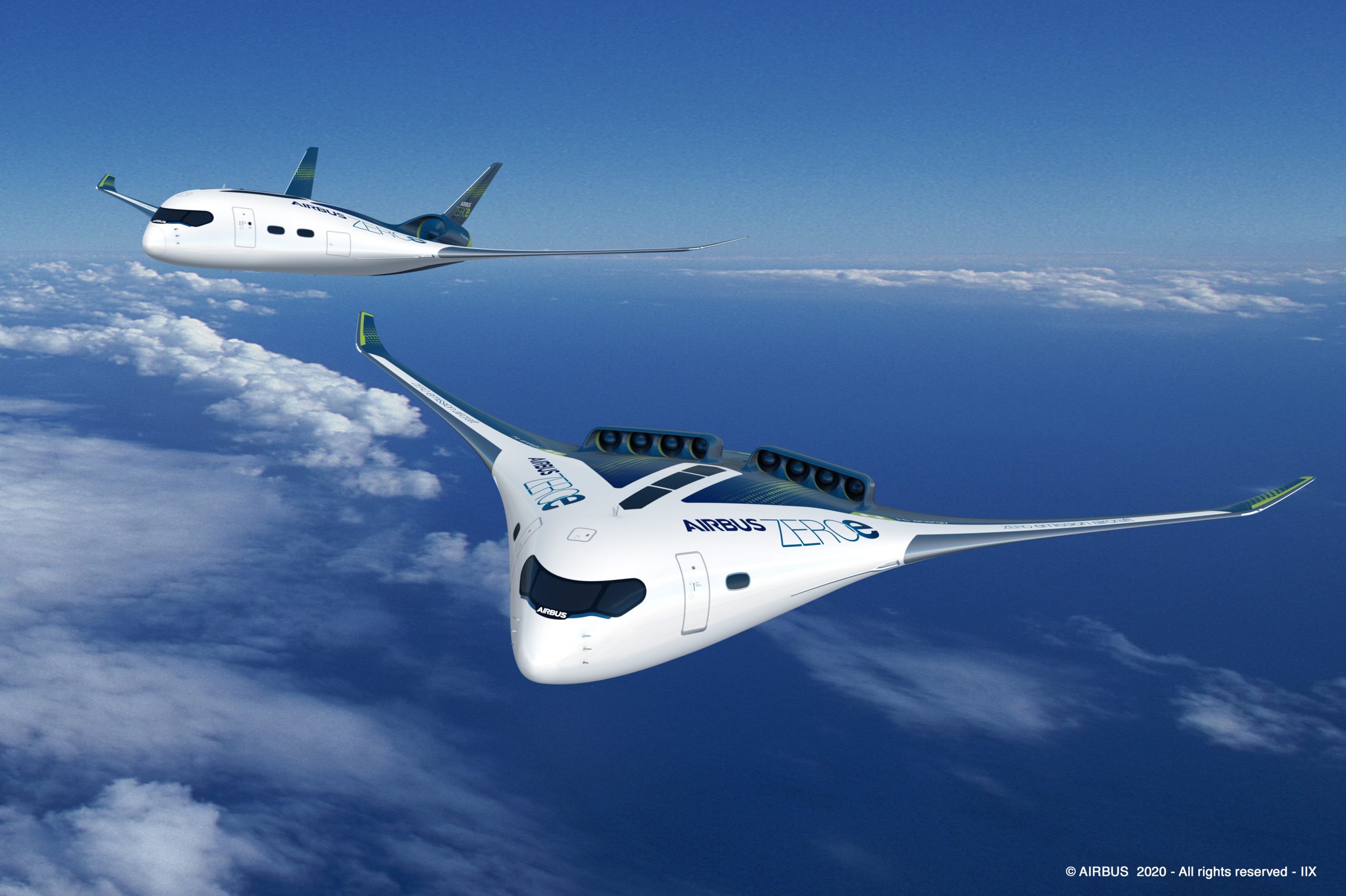Two companies dominate commercial aviation and only one of them is taking serious steps towards bringing a zero-emission aircraft to market.
As Boeing struggles to recover from the crashes that killed 346 people and grounded its 737 Max aircraft, Airbus is pushing ahead with its plans to reengineer aviation for a hydrogen-fuelled future.
In September 2020, Airbus revealed three ZEROe concept aircraft, all powered by hydrogen, which it stated at the time holds “exceptional promise” as a clean aviation fuel. The planes look pretty weird compared with what we’re used to travelling on today as they are designed to accommodate fuel tanks that can hold hydrogen that has been chilled to minus 253 degrees centigrade to keep it liquid.
The “blended-wing body” design looks like a flying V, while the turbofan and turboprop designs have longer bodies to store the hydrogen fuel in the rear and have longer wings. All the aircraft are hybrid-hydrogen, powered by a combination of hydrogen combustion engines and electricity from hydrogen fuel cells.
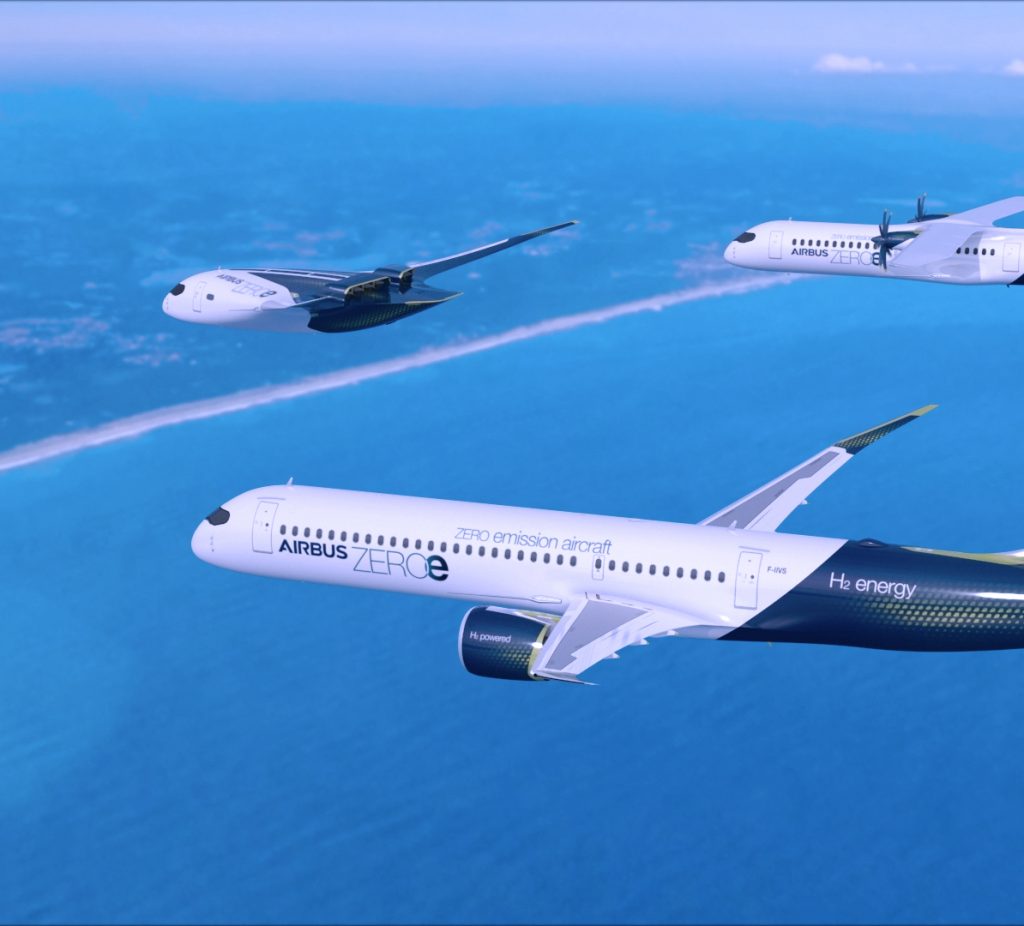
In September 2020, Airbus revealed three ZEROe concept aircraft, all powered by hydrogen.
“Hydrogen has an energy density three times that of kerosene – [technically it] is made for aviation,” Airbus CEO Guillaume Faury told reporters last year.
As suggested by the extreme temperatures needed to store hydrogen fuel, the technical challenges to getting a commercial hydrogen aircraft into service are considerable and Airbus has set itself a target of 2035.
However, it expects to achieve “mature technology readiness” for a hydrogen-combustion propulsion system by 2025.
To reach that goal, this year Airbus launched its ZEROe demonstrator, through which it will test hydrogen combustion technology on an A380 test plane. In February this year, it announced that the hydrogen combustion engine to be used in these test aircraft is being developed by CFM International, a joint venture between GE and Safran.
In March, Airbus revealed a partnership with U.S.-based Delta Air Lines to help it develop its hydrogen-powered passenger aircraft. Delta will help Airbus understand the requirements for the plane, including refuelling infrastructure at U.S. airports and passenger needs.
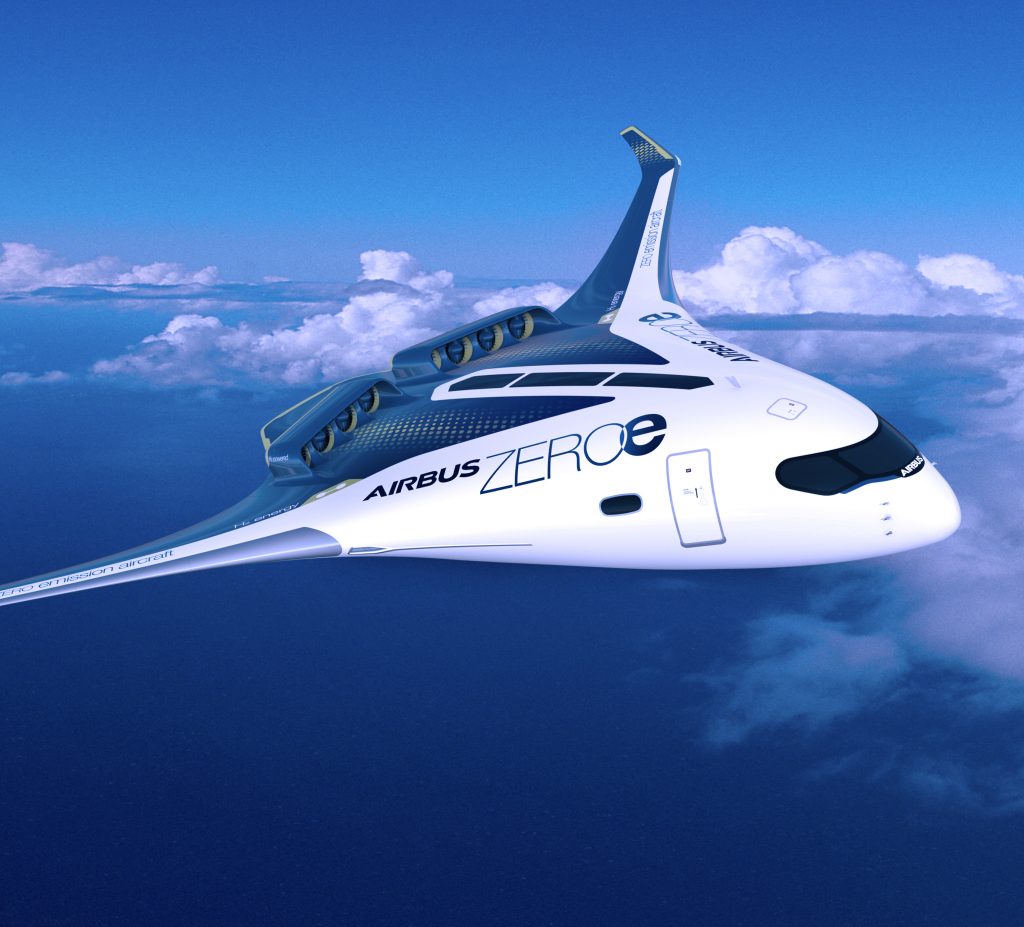
The hydrogen powered “blended-wing body” design looks like a flying V
While Airbus is a pioneer in hydrogen aviation, it is not alone. FlyZero, the UK study into zero-carbon emission commercial air travel, concluded that green hydrogen is the optimum fuel for zero-carbon emission flight and could power a midsize aircraft with 280 passengers from London to San Francisco directly, or from London to Auckland with just one stop.
The economics look good too. In January, U.S. non-profit, the International Council on Clean Transportation, published a study that found green hydrogen would be a cheaper aviation fuel than e-kerosene for trips of up to 3,400 km.
Start-ups, such as ZeroAvia, are developing hydrogen-fueled aircraft. European airline easyJet has been a major proponent of hydrogen-powered flight and predicts it will be carrying passengers by the mid-2030s.
The future of aviation is hydrogen. Some flights will be arriving earlier than others.
To lear no more about Ryze Hydrogen click here.
